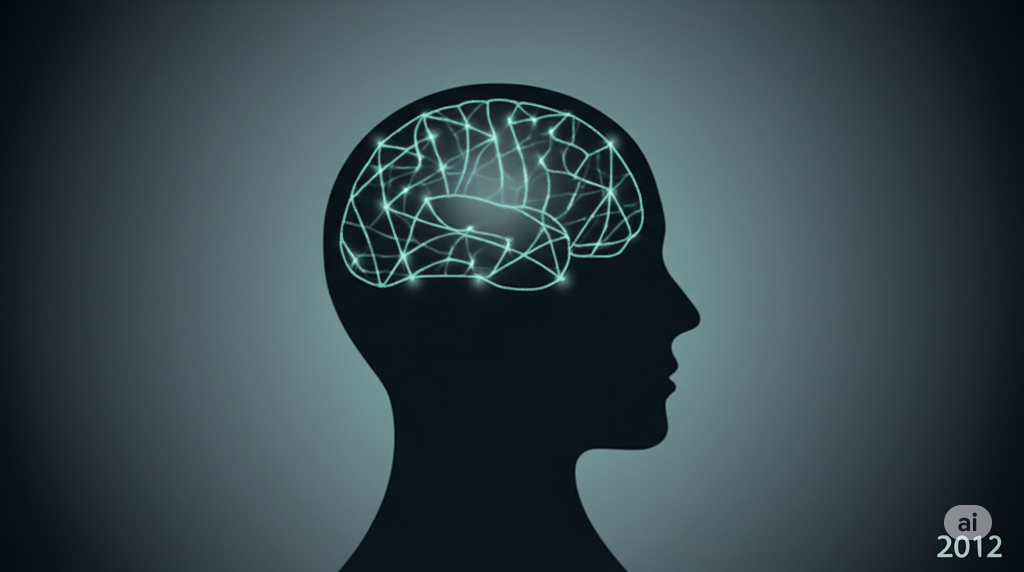Your Mind Is Not the Enemy: Reframing Mental Health in 2025
Meta Title: Your Mind Is Not the Enemy: Reframing Mental Health for a Brighter 2025
Meta Description: In 2025, it’s time to shift our perspective on mental health. Discover why your mind isn’t the enemy and learn empowering new approaches to cultivate well-being and resilience.
Schema Markup Suggestion: Use Article Schema to mark up the article details (headline, author, date, publisher, etc.) and FAQPage Schema for the FAQ section.
Image Alt Text Suggestions:
alt="Abstract representation of a brain with interconnected glowing pathways, symbolizing the complexity of the mind."alt="A hand gently holding a seed growing into a strong tree, representing nurturing mental health and resilience."alt="A diverse group of people engaging in mindful activities in nature, highlighting holistic approaches to well-being."
Table of Contents
- A. The Stigma Shift: Reframing Our Relationship with the Mind in 2025
- B. Challenging the “Enemy” Narrative: Why Your Mind Isn’t the Problem
- C. The Language of Mental Health: Moving Beyond Pathology
- D. Understanding the Mind’s Purpose: Adaptation and Survival
- E. The Impact of Societal Factors on Mental Well-being in 2025
- F. Embracing Neurodiversity: Recognizing the Spectrum of Mental Experience
- G. Holistic Approaches to Mental Health: Mind, Body, and Connection
- H. The Role of Technology in Reframing Mental Health Support in 2025
- I. Cultivating Resilience: Building Inner Strength, Not Fighting Yourself
- J. The Power of Self-Compassion: A Kinder Approach to Mental Health
- K. Reframing “Negative” Emotions: Understanding Their Value
- L. Practical Steps for Reframing Your Own Relationship with Your Mind
- M. The Future of Mental Health: A Paradigm Shift in 2025 and Beyond
- N. FAQ Section
- O. Conclusion: Towards a Kinder and More Understanding Future for Mental Well-being
A. The Stigma Shift: Reframing Our Relationship with the Mind in 2025
As we move further into the 21st century, and specifically towards 2025, a significant shift is occurring in our understanding and approach to mental health. For too long, the narrative surrounding mental struggles has often painted the mind as a flawed entity, an internal enemy prone to malfunction. Terms like “battling depression,” “fighting anxiety,” and “overcoming mental illness” perpetuate this adversarial relationship, suggesting that our own minds are working against us.
However, in 2025, a more compassionate and nuanced perspective is gaining momentum. We are beginning to recognize that the mind is not the enemy, but a complex and dynamic organ intricately connected to our overall well-being and responding to a multitude of internal and external factors. This reframing involves moving away from blame and judgment towards understanding, acceptance, and proactive cultivation of mental wellness. This isn’t about ignoring genuine struggles, but about changing the fundamental way we perceive and interact with our own minds, fostering a sense of collaboration rather than conflict. This shift in perspective holds the key to reducing stigma, promoting help-seeking behaviors, and ultimately building a healthier and more supportive society.
B. Challenging the “Enemy” Narrative: Why Your Mind Isn’t the Problem
The idea that our minds can turn against us is deeply ingrained. When we experience anxiety, depression, or other mental health challenges, it’s natural to feel frustrated, angry, and as though our own brain is betraying us. However, this “enemy” narrative is not only unhelpful but also inaccurate.
Consider this: your mind is constantly working to process information, keep you safe, and make sense of the world around you. When you experience anxiety, it’s often a heightened threat response, perhaps triggered by past experiences or perceived future dangers. Depression can be a complex response to stress, loss, or biological factors, signaling a need for rest and recalibration. These experiences, while painful, are not evidence of a malicious or inherently flawed mind.
Instead, they can be seen as signals, indicators that something is amiss, either internally or externally. Blaming your mind for these experiences is like blaming a smoke detector for going off when there’s a fire. The detector isn’t the problem; it’s highlighting a situation that needs attention. Similarly, our mental and emotional experiences, even the difficult ones, often point towards underlying needs, stressors, or imbalances that require understanding and care, not condemnation. Reframing the narrative allows us to approach our mental health with curiosity and compassion rather than self-blame and hostility.
C. The Language of Mental Health: Moving Beyond Pathology
The language we use to discuss mental health significantly shapes our perceptions. Historically, and even in some contemporary contexts, the discourse has been heavily focused on pathology and diagnosis. While accurate diagnosis is crucial for targeted treatment, an overemphasis on “illness” and “disorder” can inadvertently reinforce the idea that the mind is inherently broken when experiencing distress.
In 2025, there’s a growing movement towards using more humanistic and less stigmatizing language. This includes:
- Focusing on Well-being and Flourishing: Shifting the emphasis from the absence of illness to the presence of positive mental qualities like resilience, purpose, and connection.
- Using Person-First Language: Referring to “a person experiencing depression” rather than “a depressed person” emphasizes that the individual is not defined by their experience.
- Talking About Mental Health as a Spectrum: Recognizing that mental well-being fluctuates and that everyone exists somewhere on this spectrum, rather than a binary of “healthy” or “ill.”
- Employing Strength-Based Language: Highlighting individuals’ inherent capacities for coping, growth, and recovery, rather than solely focusing on deficits.
This evolution in language reflects a deeper understanding that mental health is not simply the absence of mental illness, but a state of overall psychological well-being that enables individuals to cope with the stresses of life, realize their abilities, learn and work well, and contribute to their community. By consciously choosing our words, we can foster a more empowering and less judgmental culture around mental health.
D. Understanding the Mind’s Purpose: Adaptation and Survival
To truly appreciate that your mind isn’t the enemy, it’s essential to understand its fundamental purpose: adaptation and survival. Over millennia, the human brain has evolved to be highly attuned to potential threats and to learn from experiences to ensure our safety and propagation.
Many of the mental processes that we now find distressing, such as worry and fear, were once crucial for survival. Hypervigilance, for example, could alert our ancestors to danger. Rumination might have helped them to analyze past mistakes and avoid them in the future. While the nature of threats has changed significantly in modern life, these ingrained responses can still be triggered, sometimes in ways that feel disproportionate or unhelpful.
Understanding this evolutionary context can help to normalize some of our more challenging mental experiences. It reminds us that these are often the result of deeply ingrained mechanisms designed to protect us, even if they are now misfiring in certain situations. This perspective fosters a sense of understanding and can reduce the tendency to view these mental processes as personal failings or evidence of a flawed mind. Instead, we can approach them with curiosity, seeking to understand the underlying triggers and learning healthier ways to respond.
E. The Impact of Societal Factors on Mental Well-being in 2025
In 2025, we are increasingly aware of the profound impact of societal factors on individual mental health. The pressures of modern life, including economic inequality, social isolation, rapid technological change, and exposure to constant information (and often misinformation), can significantly contribute to stress, anxiety, and other mental health challenges.
It’s crucial to recognize that these are not solely individual problems arising from flawed minds. Systemic issues play a significant role in shaping our mental landscape. For example:
- Economic Insecurity: Financial stress is a major contributor to anxiety and depression.
- Social Media and Comparison Culture: Constant exposure to curated online personas can fuel feelings of inadequacy and low self-esteem.
- Lack of Community and Social Connection: Loneliness and isolation have been shown to have a detrimental impact on mental and physical health.
- Discrimination and Marginalization: Experiencing prejudice based on race, gender, sexual orientation, or other factors can lead to chronic stress and trauma.
Reframing mental health in 2025 requires acknowledging these societal influences and advocating for systemic changes that promote collective well-being. This includes addressing social determinants of health, fostering inclusive and equitable communities, and promoting a culture of connection and support. Recognizing the external factors that contribute to mental distress helps to move away from solely blaming the individual mind.
F. Embracing Neurodiversity: Recognizing the Spectrum of Mental Experience
The concept of neurodiversity is gaining increasing recognition and acceptance in 2025. It emphasizes that neurological differences, such as autism, ADHD, and dyslexia, are natural variations of the human brain and should be respected and celebrated rather than viewed as deficits or disorders.
Extending this perspective, we can begin to embrace a broader understanding of neurodiversity within the realm of mental health. Just as there is a wide range of physical traits, there is also a natural spectrum of cognitive and emotional styles. What might be considered a “symptom” in one context could be a strength or a unique way of processing information in another.
Reframing mental health through a neurodiversity lens encourages us to:
- Move Away from a One-Size-Fits-All Approach: Recognizing that different individuals may have different needs and thrive in different environments.
- Focus on Strengths and Adaptations: Identifying and leveraging individuals’ unique talents and developing supportive strategies that accommodate their differences.
- Challenge Stigmatizing Labels: Moving beyond deficit-based language and embracing a more inclusive understanding of mental experience.
Embracing neurodiversity fosters a more compassionate and accepting view of the mind, recognizing its inherent variability and moving away from the idea of a single “normal” or “healthy” way of thinking and feeling.
G. Holistic Approaches to Mental Health: Mind, Body, and Connection
In 2025, the understanding of mental health is increasingly embracing a holistic perspective, recognizing the interconnectedness of mind, body, and social connection. This approach moves beyond solely focusing on psychological interventions and incorporates a wider range of factors that influence well-being.
Holistic approaches to mental health may include:
- Physical Activity and Nutrition: Recognizing the powerful impact of exercise and a balanced diet on mood and cognitive function. Research consistently shows a link between physical activity and reduced symptoms of depression and anxiety (e.g., Sharma et al., 2006).
- Sleep Hygiene: Understanding the crucial role of adequate and restful sleep in mental and emotional regulation. Chronic sleep deprivation can significantly impact mood and cognitive function.
- Mindfulness and Meditation Practices: Cultivating present moment awareness and reducing stress through techniques like meditation and deep breathing.
- Social Connection and Support: Recognizing the vital role of relationships and community in fostering a sense of belonging and buffering against stress. Studies have shown that strong social support networks are associated with better mental health outcomes (e.g., Cohen & Wills, 1985).
- Spending Time in Nature: Appreciating the restorative effects of natural environments on mental well-being. Research suggests that exposure to nature can reduce stress and improve mood (e.g., Ulrich et al., 1991).
- Creative Expression and Engagement: Utilizing activities like art, music, and writing as outlets for emotional processing and self-expression.
By adopting a holistic view, we acknowledge that mental health is influenced by a complex interplay of factors and that supporting well-being requires a multi-faceted approach that addresses the whole person, rather than just focusing on perceived “problems” within the mind.
H. The Role of Technology in Reframing Mental Health Support in 2025
Technology is playing an increasingly significant role in reshaping mental health support in 2025. While concerns exist about the potential negative impacts of technology on mental well-being (e.g., social media comparison), it also offers numerous opportunities to reframe how we access and engage with mental health resources.
These technological advancements include:
- Telehealth and Online Therapy: Expanding access to mental health professionals, particularly for individuals in rural or underserved areas.
- Mental Health Apps: Providing tools for self-monitoring, mindfulness exercises, and cognitive behavioral therapy techniques. Many apps offer guided meditations and track mood and symptoms.
- Wearable Technology: Monitoring physiological indicators of stress, such as heart rate variability, and providing insights into well-being.
- Virtual Reality (VR) and Augmented Reality (AR): Creating immersive experiences for exposure therapy and skills training in a safe and controlled environment.
- Artificial Intelligence (AI): Developing chatbots and virtual assistants that can provide basic support, information, and connect individuals with appropriate resources.
Technology can help to destigmatize mental health by offering anonymous and accessible support options. It can also empower individuals to take a more active role in managing their own well-being and provide valuable data to inform personalized care. However, it’s crucial to ensure that technology is used ethically and responsibly, and that human connection remains a central aspect of mental health support.
I. Cultivating Resilience: Building Inner Strength, Not Fighting Yourself
The traditional “battle” metaphor in mental health often implies a need to fight against one’s own mind. However, in 2025, there’s a growing emphasis on cultivating resilience – the ability to bounce back from adversity and cope with stress. Resilience is not about being immune to challenges, but about developing inner strength and adaptive coping mechanisms.
Reframing our approach towards building resilience involves:
- Focusing on Strengths: Identifying and leveraging existing personal strengths and resources.
- Developing Coping Skills: Learning healthy strategies for managing stress, anxiety, and difficult emotions, such as problem-solving, relaxation techniques, and seeking social support.
- Building Self-Efficacy: Fostering a belief in one’s own ability to succeed in specific situations or accomplish a task.
- Promoting Flexibility and Adaptability: Learning to adjust to change and uncertainty.
- Cultivating Meaning and Purpose: Connecting with values and engaging in activities that provide a sense of meaning and direction.
Building resilience is an active process of self-care and skill development that empowers individuals to navigate life’s challenges with greater confidence and well-being, without viewing their own minds as the obstacle to overcome.
J. The Power of Self-Compassion: A Kinder Approach to Mental Health
Self-compassion involves treating yourself with the same kindness, care, and understanding that you would offer to a friend who is struggling. It’s about recognizing your shared humanity, acknowledging that imperfection is part of the human experience, and offering yourself warmth and acceptance, especially during times of difficulty.
In contrast to self-criticism, which often fuels negative thought patterns and feelings of inadequacy, self-compassion offers a more nurturing and supportive inner dialogue. Research by Kristin Neff (e.g., Neff, 2003) has consistently demonstrated the benefits of self-compassion for mental well-being, including lower levels of anxiety and depression and greater life satisfaction.
Reframing mental health in 2025 necessitates embracing self-compassion as a core element of well-being. This involves:
- Self-Kindness: Being gentle and understanding with yourself rather than harsh and critical.
- Common Humanity: Recognizing that suffering and imperfection are part of the shared human experience, rather than feeling isolated in your struggles.
- Mindfulness: Paying attention to your thoughts and feelings without judgment, allowing you to acknowledge your difficulties with greater clarity and compassion.
Cultivating self-compassion is a powerful way to shift your relationship with your mind from one of conflict to one of acceptance and support, fostering greater emotional resilience and well-being.
K. Reframing “Negative” Emotions: Understanding Their Value
In a society that often equates happiness with well-being, “negative” emotions like sadness, anger, and fear can be perceived as problematic or as signs of a flawed mind. However, in 2025, there’s a growing understanding that all emotions, even the uncomfortable ones, serve a purpose and provide valuable information.
Reframing our perspective on these emotions involves recognizing that:
- Sadness: Can signal loss, the need for grieving, and can foster empathy and connection with others.
- Anger: Can indicate injustice, violation of boundaries, and can motivate us to take action and protect ourselves.
- Fear: Can alert us to danger and trigger protective responses, ensuring our safety.
- Anxiety: Can sometimes be a motivator for preparation and can highlight potential future challenges that need attention.
The goal is not to suppress or eliminate these emotions, but to learn to understand their messages and respond to them in healthy and adaptive ways. By reframing “negative” emotions as valuable sources of information rather than enemies to be defeated, we can develop greater emotional intelligence and navigate our inner landscape with more wisdom and self-awareness.
L. Practical Steps for Reframing Your Own Relationship with Your Mind
Reframing your relationship with your mind is an ongoing process that requires conscious effort and self-awareness. Here are some practical steps you can take:
- Practice Mindful Self-Observation: Pay attention to your thoughts and feelings without judgment. Notice when you fall into critical or blaming patterns.
- Challenge Negative Self-Talk: When you notice a negative thought, ask yourself: Is this thought 100% true? What evidence supports it? What evidence contradicts it?
- Cultivate Self-Compassion: Treat yourself with kindness and understanding, especially when you are struggling. Ask yourself: What would I say to a friend in this situation?
- Reframe “Problems” as Signals: Instead of viewing difficult emotions or thoughts as evidence of a flawed mind, see them as signals that something needs attention or adjustment.
- Focus on Your Strengths: Identify and actively use your personal strengths and resources.
- Practice Gratitude: Regularly focus on the things you are grateful for, shifting your attention towards the positive aspects of your life.
- Engage in Activities That Support Well-being: Prioritize physical activity, healthy eating, adequate sleep, and meaningful social connections.
- Seek Support When Needed: Don’t hesitate to reach out to friends, family, or mental health professionals when you are struggling.
- Be Patient and Kind to Yourself: Changing ingrained thought patterns takes time and effort. Celebrate your progress and offer yourself compassion during setbacks.
By consistently incorporating these practices into your life, you can gradually shift your relationship with your mind from one of conflict to one of collaboration and understanding.
M. The Future of Mental Health: A Paradigm Shift in 2025 and Beyond
In 2025, we stand at the cusp of a significant paradigm shift in our approach to mental health. The traditional model, often focused on pathology and fighting against mental “illness,” is evolving towards a more holistic, compassionate, and empowering framework. This shift involves:
- Increased Emphasis on Prevention and Early Intervention: Proactively promoting mental well-being rather than solely reacting to crises.
- Integration of Mental and Physical Health Care: Recognizing the interconnectedness of mind and body in healthcare systems.
- Personalized and Data-Driven Approaches: Utilizing technology and research to tailor interventions to individual needs.
- Greater Focus on Social Determinants of Mental Health: Addressing systemic issues that contribute to mental distress.
- Destigmatization and Open Conversation: Fostering a culture where mental health is discussed openly and without judgment.
- Empowering Individuals to Be Active Participants in Their Own Well-being: Providing tools and knowledge to promote self-management and resilience.
This future of mental health recognizes that your mind is not the enemy, but a vital aspect of your overall well-being that deserves understanding, care, and respect. By embracing this reframed perspective, we can collectively move towards a kinder, more supportive, and ultimately healthier future for all.
N. FAQ Section
1. Why is it harmful to think of my mind as the enemy?
Thinking of your mind as the enemy can lead to self-blame, shame, and a constant internal struggle, which can exacerbate mental health challenges and hinder recovery.
2. Does reframing mental health mean ignoring serious mental illnesses?
No, reframing mental health does not mean ignoring serious mental illnesses. It means approaching all mental health experiences, including diagnosed conditions, with greater understanding, compassion, and a focus on overall well-being and recovery.
3. How can understanding the evolutionary purpose of the mind help with mental health?
Understanding that many distressing mental processes were originally adaptive can normalize these experiences and reduce self-blame, fostering a more compassionate perspective.
4. What role does society play in individual mental health?
Societal factors like economic inequality, social isolation, discrimination, and access to resources can significantly impact individual mental well-being. Addressing these systemic issues is crucial for improving mental health outcomes.
5. How can I practice self-compassion towards my mind?
Treat yourself with the same kindness and understanding you would offer a friend who is struggling. Acknowledge your difficulties without judgment and remind yourself that imperfection is part of being human.
6. What are some practical ways to build mental resilience?
Focus on your strengths, develop coping skills, build self-efficacy, promote flexibility, and cultivate meaning and purpose in your life.
7. How can I distinguish between a helpful thought and an unhelpful one?
Helpful thoughts are typically realistic, balanced, and lead to positive actions or feelings. Unhelpful thoughts are often negative, distorted, and contribute to distress or avoidance.
8. Is technology always beneficial for mental health?
While technology offers many benefits for mental health support, it can also have negative impacts (e.g., social media comparison). It’s important to use technology mindfully and ensure it complements, rather than replaces, human connection.
9. How can I help someone who is struggling with their mental health based on this reframed perspective?
Offer empathy, understanding, and support without judgment. Encourage them to seek help and focus on their strengths and well-being, rather than blaming themselves.
10. What is the key takeaway about reframing mental health in 2025?
The key takeaway is to move away from viewing the mind as an enemy and towards a more compassionate, holistic, and empowering understanding of mental well-being, recognizing the interplay of individual, societal, and biological factors.
O. Conclusion: Towards a Kinder and More Understanding Future for Mental Well-being
The journey of mental health in 2025 and beyond calls for a fundamental shift in perspective. By challenging the adversarial narrative and recognizing that our minds are not the enemy, we open the door to a more compassionate and effective approach to well-being. This reframing involves understanding the mind’s purpose, acknowledging societal influences, embracing neurodiversity, and adopting holistic strategies that nurture the interconnectedness of mind, body, and connection. Cultivating resilience, practicing self-compassion, and understanding the value of all emotions are crucial steps in this transformative process. As technology evolves and our understanding deepens, the future of mental health promises a paradigm shift towards prevention, personalization, and empowerment. By collectively embracing this kinder and more understanding future, we can foster a society that truly supports the mental well-being of all its members.
References:
- Cohen, S., & Wills, T. A. (1985). Stress, social support, and the buffering hypothesis. Psychological Bulletin, 98(2), 310–357.
- Neff, K. D. (2003). Self-compassion: An alternative conceptualization of a healthy attitude toward oneself. Self and Identity, 2(2), 85–101.
- Sharma, A., Madaan, V., & Petty, F. D. (2006). Exercise for mental health. Primary Care Companion to The Journal of Clinical Psychiatry, 8(2), 106.
- Ulrich, R. S., Simons, R. F., Losito, B. D., Fiorito, E., Miles, M. A., & Zelson, M. (1991). Stress recovery during exposure to natural and urban environments. Journal of Environmental Psychology, 11(3), 201–230.




